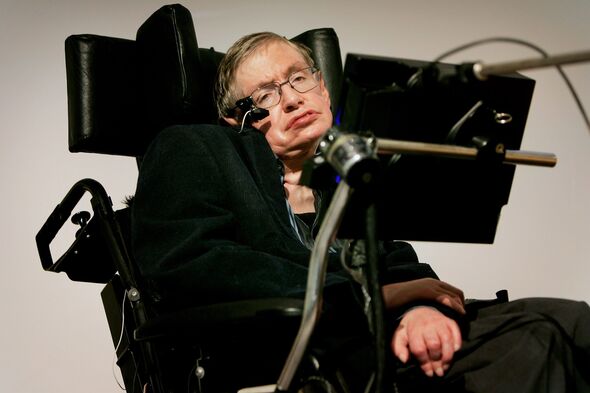Science
Scientists Warn of Black Hole Explosion with 90% Chance by 2035

Physicists have issued a stark warning about a primordial black hole that may explode within the next decade, potentially creating a cosmic event unprecedented in human history. Researchers at the University of Massachusetts Amherst (UMass Amherst) estimate a **90% chance** that this black hole will detonate by **2035**.
Primordial black holes are thought to have formed shortly after the Big Bang, approximately **13.8 billion years ago**. Unlike typical black holes that emerge from the collapse of massive stars, these ancient relics originated from high-density fluctuations in the early universe. The implications of an explosion could be immense, as scientists are already preparing advanced telescopes to capture the event, should it occur.
Lead study author **Michael Baker**, an assistant professor of physics at UMass Amherst, stated, “We’re not claiming that it’s absolutely going to happen this decade. But there could be a 90% chance that it does.” The research highlights the unprecedented nature of the phenomenon, indicating that humanity may witness the first observable evidence of **Hawking radiation**, a theoretical prediction made by the renowned physicist **Stephen Hawking** in the 1970s.
Hawking proposed that black holes can emit radiation due to quantum effects near their event horizons, leading to gradual mass loss and, potentially, an explosion. This theoretical radiation is crucial for understanding the fundamental particles that comprise our universe.
Scientists believe that observing the explosion of a primordial black hole could yield critical insights into physics. The event is expected to release various fundamental particles, some of which may not yet be confirmed by current scientific understanding. According to the researchers, this could “revolutionise physics and rewrite the history of the universe.”
Baker emphasized the readiness of current technology to observe such explosions, despite the fact that the event itself will not be visible to the naked eye. “Since we already have the technology to observe these explosions, we should be ready,” he noted.
The research published in the journal **Physical Review Letters** outlines the potential significance of these explosions. The findings suggest that such events could occur every decade or even more frequently, contrary to earlier estimates of once every **100,000 years**.
As the scientific community anticipates the possibility of this primordial black hole explosion, the focus remains on harnessing observational technology to capture this extraordinary moment. The implications of such an event could not only confirm the existence of primordial black holes but also provide definitive information about the fundamental particles present in nature.
In summary, the potential explosion of a primordial black hole within the next ten years may hold transformative insights into the universe and the fundamental laws of physics. Researchers continue to prepare for what could be one of the most significant cosmic events in modern history.
-

 World5 days ago
World5 days agoCoronation Street’s Shocking Murder Twist Reveals Family Secrets
-

 Entertainment4 months ago
Entertainment4 months agoKate Garraway Sells £2 Million Home Amid Financial Struggles
-

 Entertainment3 months ago
Entertainment3 months agoAnn Ming Reflects on ITV’s ‘I Fought the Law’ Drama
-

 Entertainment3 days ago
Entertainment3 days agoAndrew Pierce Confirms Departure from ITV’s Good Morning Britain
-

 Health3 months ago
Health3 months agoKatie Price Faces New Health Concerns After Cancer Symptoms Resurface
-

 Entertainment4 weeks ago
Entertainment4 weeks agoCoronation Street Fans React as Todd Faces Heartbreaking Choice
-

 World4 weeks ago
World4 weeks agoBailey Announces Heartbreaking Split from Rebecca After Reunion
-

 Entertainment1 week ago
Entertainment1 week agoTwo Stars Evicted from I’m A Celebrity Just Days Before Finale
-

 World1 week ago
World1 week agoKevin Sinfield Exceeds Fundraising Goal Ahead of Final Marathons
-

 Entertainment3 months ago
Entertainment3 months agoCoronation Street’s Carl Webster Faces Trouble with New Affairs
-

 Entertainment3 months ago
Entertainment3 months agoWhere is Tinder Swindler Simon Leviev? Latest Updates Revealed
-

 Entertainment4 months ago
Entertainment4 months agoMarkiplier Addresses AI Controversy During Livestream Response









